News
AI calls for protection of human rights of everyone
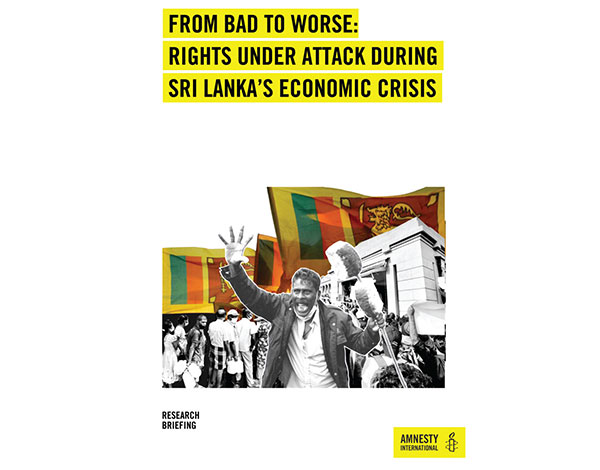
As the people in Sri Lanka are facing a catastrophic economic crisis, the government must protect the human rights of everyone and ensure an enabling environment for peacefully expressing dissent, Amnesty International (AI) said.
In a report titled ‘From Bad to Worse: Rights Under Attack During Sri Lanka’s Economic Crisis’, the AI also called for the international community to support Sri Lanka in its recovery in line with obligations around international cooperation and assistance, with a particular focus on marginalized groups who are at grave risk.
“The crisis in Sri Lanka is a prime example of the interdependence and interrelatedness of economic and social rights and civil political rights. As such, human rights must be at the heart of discussions on Sri Lanka’s economic future,” said Yamini Mishra, South Asia Regional Director for Amnesty International.
“We urge the international community to step in where possible to support Sri Lanka with necessary financial and technical assistance, such as debt relief and aid, in line with a human rights based assessment of the situation to ensure the economic crisis does not deteriorate into a humanitarian crisis.”
Sri Lanka is facing a balance of payment crisis and a severe foreign exchange shortage compounded by Covid-19 lockdowns, pre-pandemic tax cuts and loss of access to international capital markets. As it stands, foreign exchange reserves are critically low, making the import of essential medicines, food items, cooking gas and fuel, immensely difficult. This is affecting all major sectors, including education, health and livelihoods.
At least five individuals have died while standing in line for essentials and, to date, a total of 75 individuals have reached Tamil Nadu in India seeking economic refuge. Thousands of people in Sri Lanka have taken to the street in a show of resistance using creative slogans, art, theatre, dance, music and technology. Their demands are for the resignation of the President and the Prime Minister, but also include calls for accountability for wide-ranging human rights violations, inter-ethnic, religious unity and harmony. According to the information collected by Amnesty International, the protests have been largely peaceful; however, in several instances, the Sri Lankan authorities have unlawfully restricted their right to freedom of peaceful assembly, including the use of force, tear gas and arbitrary detentions.
The authorities must uphold human rights to freedom of movement, liberty and security of person. Also, Sri Lanka has ratified the International Covenant on Economic, Social and Cultural Rights, and has an obligation, both individually and through international assistance and cooperation, to guarantee economic and social rights. These rights include the rights to health, education, social security, adequate food, and an adequate standard of living.
In February this year, the International Monetary Fund (IMF) recommended that “social safety nets should be strengthened, by increasing spending, widening coverage, and improving targeting, to mitigate the adverse impacts of macroeconomic adjustment on vulnerable groups,” however, to date, the only proposals approved by the Sri Lankan Cabinet have been to provide ad-hoc handouts for a period of three months for low-income families. The government must urgently fund and expand social security systems and ensure that all people, including marginalised groups, are protected from the impacts of the crisis.
Amnesty International has observed that austerity measures introduced previously in several other countries in the context of economic crises have seriously impacted economic and social rights protections. In Greece and Spain, for example, austerity measures made healthcare less accessible and affordable, which had a disproportionate impact on those with lower incomes, and particularly on the elderly, those needing mental health care and treatment, those with disabilities, and with chronic health conditions.
“Lessons must be learnt from similar experiences from across the world to avoid serious repercussions,” said Yamini Mishra. “Any austerity measures introduced in Sri Lanka must be based on a human rights assessment, should be open for public scrutiny and feedback in an inclusive and participatory process, and all alternatives must be explored before they are introduced. Austerity measures must not disproportionately impact the marginalized groups and must be strictly temporary.”
Latest News
It is our collective responsibility to build a nation grounded in unity and strength – President
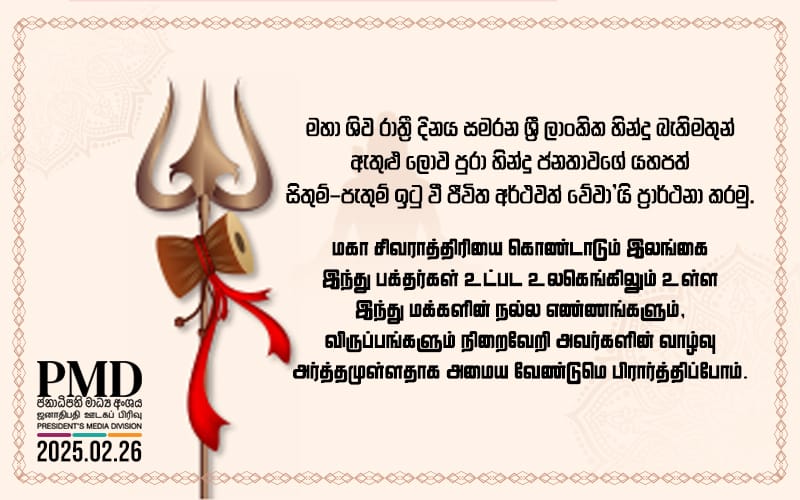
President Anura Kumara Disanayake in his Maha Shiva rathri message said that it is our collective responsibility to build a nation grounded in unity and strength.
The full text of the message issued by the President’s media division:
Maha Shiva Rathri is a sacred and joyous occasion celebrated by Hindu devotees across the world in reverence of Lord Shiva. This divine night marks the celestial union of Lord Shiva and Goddess Parvati, as well as the powerful Tandava, Shiva’s cosmic dance of creation and destruction. It symbolises the triumph of wisdom over ignorance, dispelling the darkness of illusion and lighting the path to enlightenment.
On this auspicious night, Hindu devotees observe fasting and engage in spiritual practices, praying for the darkness of ignorance to be replaced by the radiance of wisdom. It is also a time to seek divine blessings for prosperity, peace and fulfilment in life.
The union of Shiva and Parvati is a profound representation of knowledge and power coming together. It reminds us that breaking free from the illusions of division allows us to embrace the truth with open eyes. Today, as we stand at the dawn of a new era, this message is more relevant than ever. Let us tear down the barriers that have kept us apart for generations and unite as one, casting aside discord and embracing togetherness. This is a moment to nurture interfaith harmony, celebrate our diversity and move forward with love and mutual respect, dedicating ourselves to the progress of our beloved motherland.
As we journey towards a brighter future, it is our collective responsibility to build a nation grounded in unity and strength. We are stepping into a time of transformation, embracing political, economic and social renewal, shaping a future that holds promise and hope for all.
On this sacred night, as the glowing lamps of Maha Shiva Rathri illuminate our surroundings, let them also illuminate our hearts, guiding us with unwavering faith along the path we have chosen. Let us walk forward together, hand in hand, in the spirit of peace, unity and shared prosperity.
News
USD 900,000 paid monthly for three unused SriLankan aircraft– Dy. Finance Minister
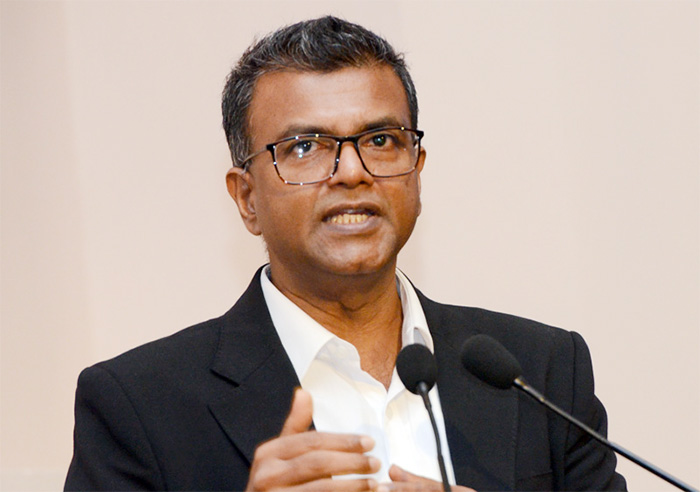
By Saman Indrajith
Finance and Planning Deputy Minister Dr. Harshana Suriyapperuma told Parliament yesterday (25) that SriLankan Airlines was in debt due to political interference under previous governments.
Answering a question raised by Anuradhapura District SJB MP Rohana Bandara, Dr. Suriyapperuma said that such interference had resulted in an ongoing case in international courts.
Dr. Suriyapperuma stated that SriLankan Airlines had earned notoriety for corruption not only here but also abroad.
“Currently, there is an ongoing case in an international court over claims that commissions were sought in respect of the purchase of aircraft. Aircraft have been leased at exorbitant rates, far beyond prevailing market rates,” he said, adding that the actions and decisions of past regimes over the last few decades regarding SriLankan Airlines must be taken into account when examining its debt.
Outlining the measures taken by the government to tackle the staggering debt, the Deputy Minister of Finance said that a five-year programme would be implemented from 2025 to 2030.
Dr. Suriyapperuma explained that despite the allocation of Rs. 20 billion from the 2025 Budget for SriLankan Airlines, the funds would not be utilised for the airline’s operational expenses. Instead, the management had been tasked with transforming it into a self-sustaining entity. Discussions had already begun with relevant stakeholders to restructure the debt, which includes loans obtained in US dollars.
Dr. Suriyapperuma revealed that SriLankan Airlines had been paying USD 900,000 per month in installments for three aircraft that had remained unused for several years. He added that the national carrier currently owned a total of 22 aircraft and employed 3,194 staff members in its main airline operations, along with 2,862 employees in its strategic business units.
Dr. Suriyapperuma also highlighted that the Ministry was currently evaluating those plans, with the expectation of achieving operational profitability and securing government support within the five-year period.
Suriyapperuma assured that measures would be taken to address SriLankan Airlines’ debt without burdening the public.
News
NPP govt. continues ban on Tamil organisations
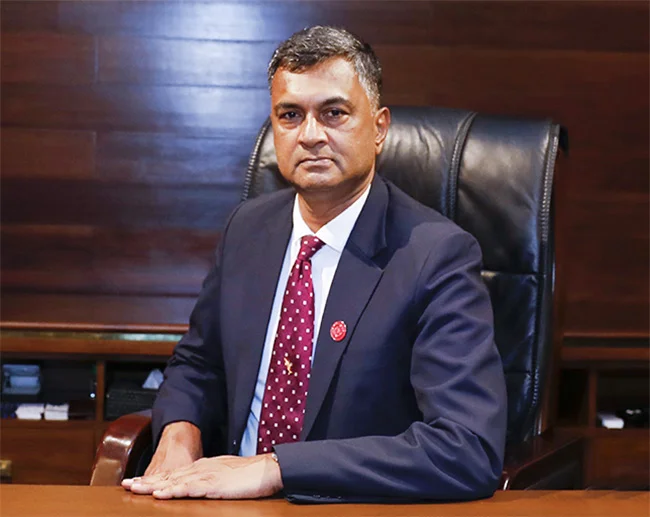
… Easter Sunday carnage suspects among them
The government has issued a gazette extending the ban on several Tamil diaspora groups, alleging they supported “terrorism-related activities,” The Tamil Guardian has reported.
The gazette, signed by Defence Secretary Air Vice Marshal (retd.) Sampath Thuyyakontha, declared that these organisations have “repeatedly provided financial support for terrorism.” As a result, their financial and economic assets remain frozen, and Sri Lankans are prohibited from having any contact with them. Those that do risk being arrested.
The list also reaffirms the ban on 222 individuals allegedly linked to terrorism.
The organisations blacklisted by the Sri Lankan government include:
* Liberation Tigers of Tamil Eelam (LTTE)
* Tamil Rehabilitation Organisation (TRO)
* Tamil Coordinating Committee (TCC)
* World Tamil Movement (WTM)
* Transnational Government of Tamil Eelam (TGTE)
* World Tamil Relief Fund (WTRF)
* National Council of Canadian Tamils (NCCT)
* Tamil Youth Organisation (TYO)
Other organisations listed include several linked to Islamic groups, such as the National Towhead Jema’ah (NTJ) and the Sri Lanka Islamic Student Movement (SLISM).
The Tamil Guardian reported that successive Sri Lankan governments have used terrorism laws to ban Tamil organisations that continue to function openly and legally in the United States, United Kingdom, Canada, and throughout Europe. This ban, however, stifles links between these diaspora organisations and Tamils, making it a criminal offence for Sri Lankan citizens to maintain contact with them.
The reposition of the ban follows a pattern seen in previous years. In 2024, Sri Lanka renewed its prohibition of Tamil diaspora organisations, days after India extended its own ban on the LTTE. The move was widely condemned as politically motivated and an attempt to justify Sri Lanka’s military presence in the “Tamil homeland”.
-

 Business2 days ago
Business2 days agoSri Lanka’s 1st Culinary Studio opened by The Hungryislander
-
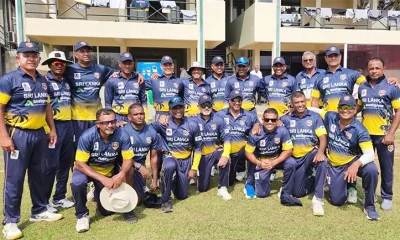
 Sports6 days ago
Sports6 days agoSri Lanka face Australia in Masters World Cup semi-final today
-

 Sports3 days ago
Sports3 days agoHow Sri Lanka fumbled their Champions Trophy spot
-

 News6 days ago
News6 days agoCourtroom shooting: Police admit serious security lapses
-
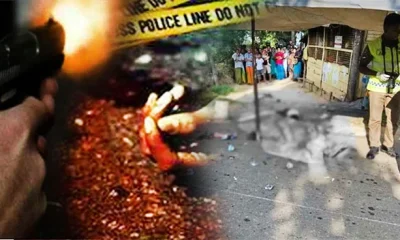
 News6 days ago
News6 days agoUnderworld figure ‘Middeniye Kajja’ and daughter shot dead in contract killing
-
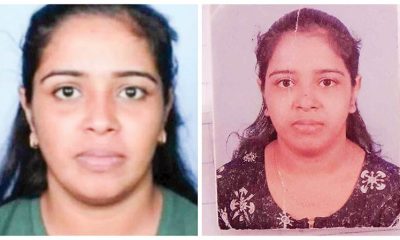
 News5 days ago
News5 days agoKiller made three overseas calls while fleeing
-

 News4 days ago
News4 days agoSC notices Power Minister and several others over FR petition alleging govt. set to incur loss exceeding Rs 3bn due to irregular tender
-

 Features3 days ago
Features3 days agoThe Murder of a Journalist











